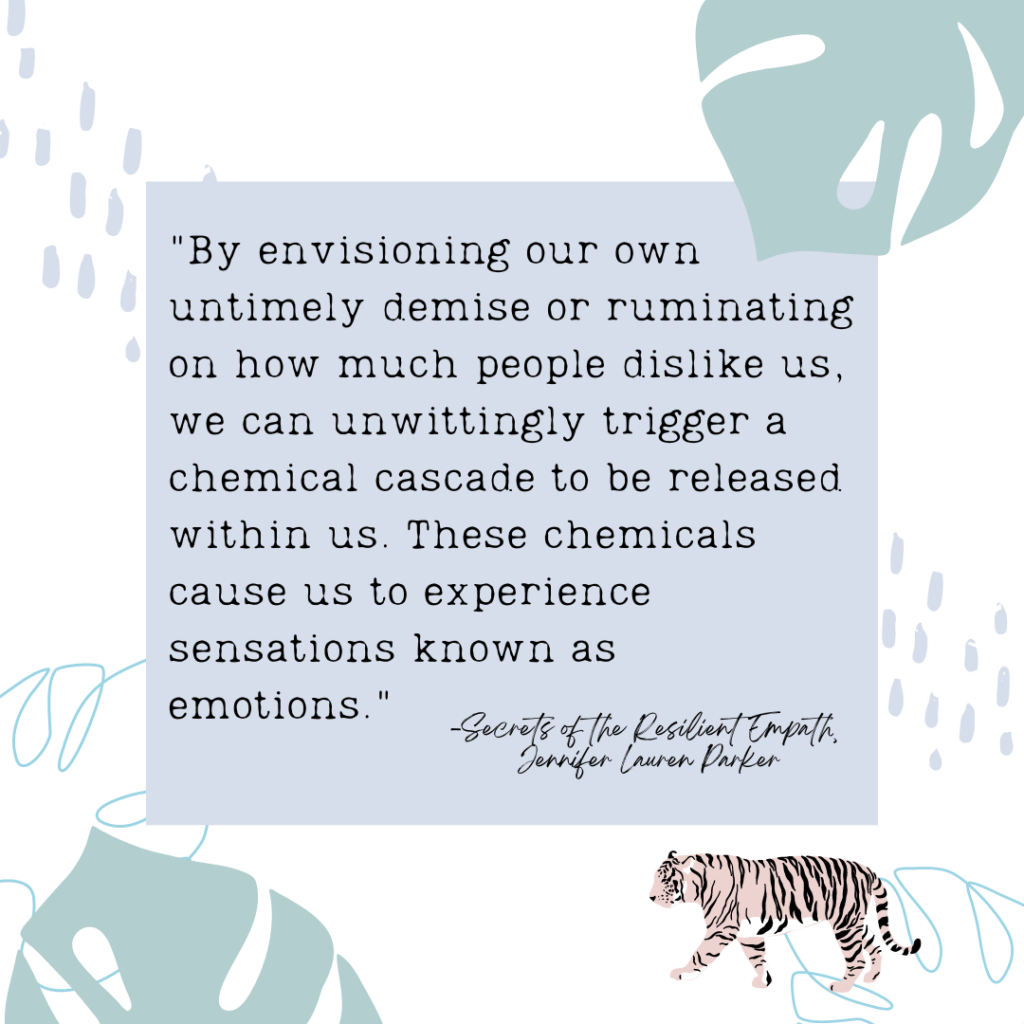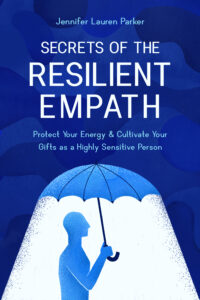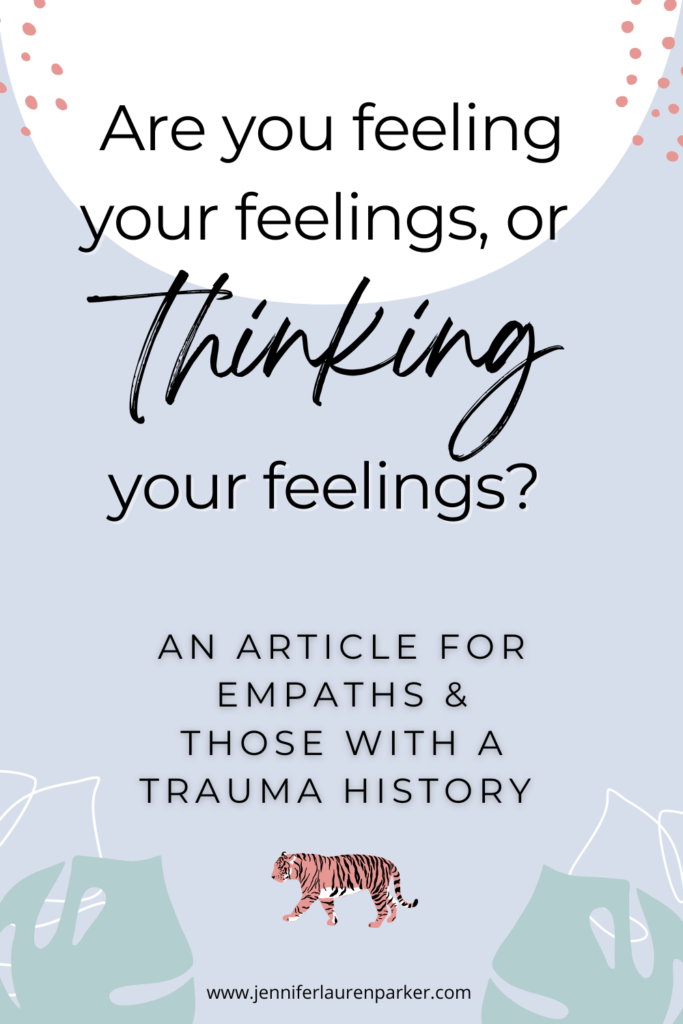Guys, I’m a very cerebral person. An overthinker. And I’m also highly empathic, being very tuned into other people and what’s going on with them. So, long story short, I managed to live forty-some years without really experiencing what my own feelings felt like.
That may sound silly, but it’s true. When I’d get an activation or sensation that would indicate some kind of emotion, or feeling, I’d immediately drop into the old noggin and start thinking, thinking, thinking about what it all might mean! Not to mention, how to stop the discomfort. I was unconsciously very afraid of the pain that might come from actually feeling my feelings.
Does any of this sound familiar to you? Really, it makes sense that we do this. In all likelihood, we learned to avoid feeling things in the body and the resulting actions (crying is a big one), in our earliest years. Perhaps the adults in our lives were too overwhelmed to sit with our big feelings, or they had other issues that made us feel unsafe approaching them with our emotions. We got good at putting on a happy or calm face and stuffing the feelings. We learned to distract ourselves with other coping mechanisms (trust me, I have stuffed my feelings with worse things than blueberries like in the video.)
As we got older, we may have gotten really good at problem solving and analyzing all the factors that contribute to an emotion-inducing situation, perhaps focusing on how others are contributing to our discomfort. Sure, we may develop fierce intellect and be mental warriors, but as time goes on, we notice there is something missing.
You see, when we’re always stuck in our heads and not present in our bodies, whilst also suppressing our emotions, it takes a huge toll. Even though we may do many things to take care of our bodies (vitamins, exercise, organic food!), we can’t seem to move the needle and feel like we’re falling apart at the seams.
This is a complex topic, but here’s the thing: When we feel a sensation in the body that we would identify as an emotion, that is a real chemical reaction happening within us. Dr. Candace Pert, neuroscientist, pharmacologist, and discoverer of the opiate receptor, said that emotions are actually peptides in the body.
These peptides affect our physiology. And, we can’t think our way out of them. We may need to cognitively process what happened in our past or why our boss is being a jerk, but the peptides do not care how many light bulb moments we have!
In fact, when we get in the habit of ruminating on our negative experiences, we’re just triggering more and more peptides of emotion. And if we don’t move them through our systems (because we’re suppressing the impulse to cry, vocalize, or move), they can get “stuck”, causing long-term issues.

Of course, thinking about our situation and deciding how best to handle things is very necessary. Gaining insight into why we are the way we are, and how our past impacted our present, are also necessary pieces. But if we ignore the body, well, as Dr. Bessel van der Kolk pointed out, it will “keep the score”.
A big part of healing (and just living a healthy life!) is quieting the mental chatter and listening to what the body needs to do to move the peptides of emotion through the system. The body intuitively knows how to do this, we just have to learn to listen and follow our natural impulses again.
If we have been burying our emotional impulses for a long time (like our entire lives, perhaps), it’s totally normal that it will take time and patience to feel comfortable emoting. There may be things we need to feel that are uncomfortable or even very painful. Go slowly and listen to what is tolerable to your system. And don’t be afraid to reach out for help where you need it.
Hope this is helpful.



anxiety, CPTSD, emotions, empaths, overthinking, trauma survivor

